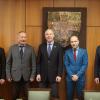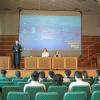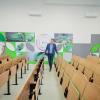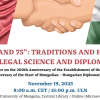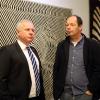“We Must Talk Even When We Disagree” – Ambassador Katalin Bogyay Visits Pécs
2025
Oct
28
On 27 October, Ambassador Katalin Bogyay, President of the United Nations Association of Hungary (MENSZT), visited Pécs. During her visit, she met with the leadership of the University of Pécs at the Rector’s Cabinet and later gave a lecture at the House of Art and Literature within the framework of the International Seasons programme, speaking about the United Nations, the role of small states in international relations, and multilateral diplomacy.
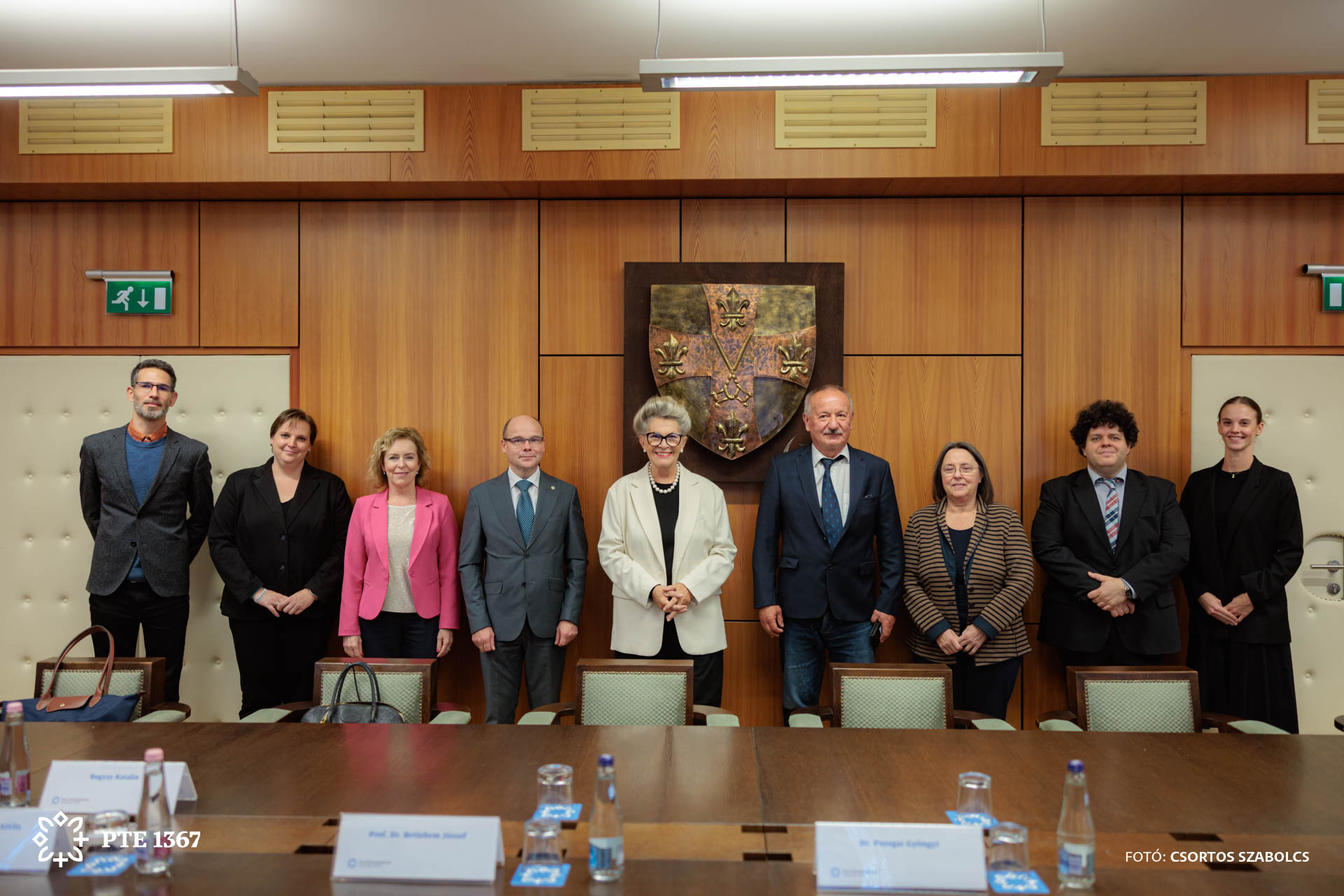
Meeting at the Rector’s Cabinet
In the early afternoon, the university’s representatives welcomed Ambassador Katalin Bogyay to a friendly meeting at the Rector’s Cabinet. The discussion touched upon the Ambassador’s personal ties to Pécs, as well as potential cooperation between the University of Pécs (PTE) and the United Nations Association of Hungary.
Participants included Dr Attila Miseta, Rector of the University, Dr József Betlehem, Vice-Rector, Dr Gyöngyi Pozsgai and Balázs Pórszász from the Directorate for International Relations, as well as Dr Ágoston Mohay, Dr Eszter Szalayné Sándor and Dr Melinda Szappanyos from the Faculty of Law.
“It is always a joy to visit Pécs – my father graduated here as a doctor in 1944, and my uncle also studied law at this university,” the Ambassador recalled at the beginning of the conversation.
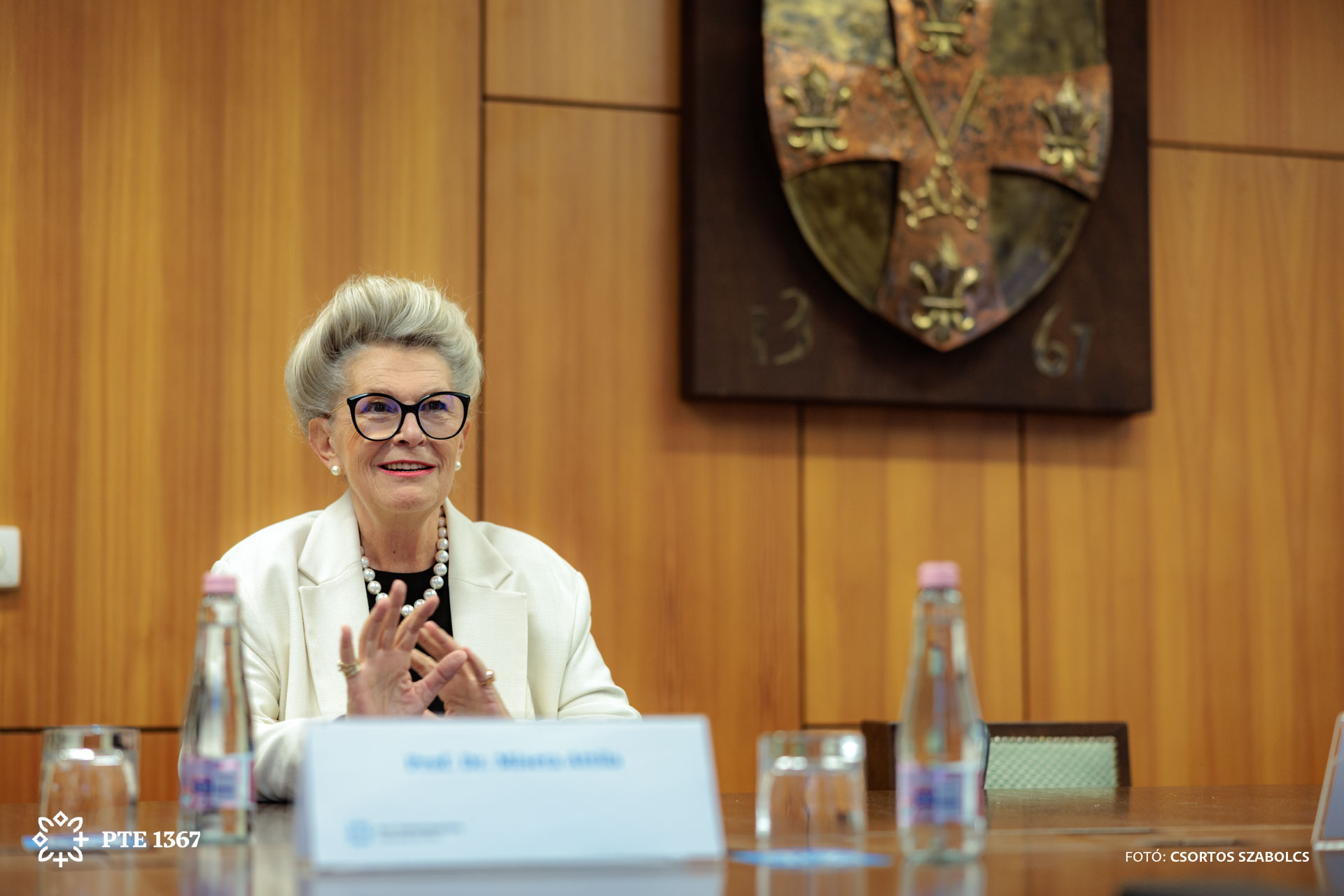
The meeting covered the university’s current situation and its ongoing internationalisation efforts. Dr Attila Miseta emphasised the rich international environment present at the University, with more than 5,500 international students.
“From this perspective, Pécs is a symbolic city – historically, it has always been a place of dialogue between cultures and religions,”
the Ambassador agreed.
The possibility of cooperation between the University of Pécs and MENSZT was also discussed, a prospect valued by both parties. Ambassador Bogyay stressed the importance of involving young people, while also ensuring that initiatives do not remain concentrated in Budapest alone – regional universities, she said, should also play an active role in these partnerships and programmes.
Understanding, Not Misunderstanding
“My father used to say: one must learn languages and music – they are the keys to understanding others. I have carried this attitude throughout my professional life, refining and adapting it along the way.
After all, how could we ever create peace if, when looking into another person’s eyes, we cannot believe that they are genuinely curious about us?”
began Ambassador Bogyay in her lecture at the House of Art and Literature, addressing a large audience gathered to hear about the 80 year old the United Nations, of which Hungary has been a member for 70 years.
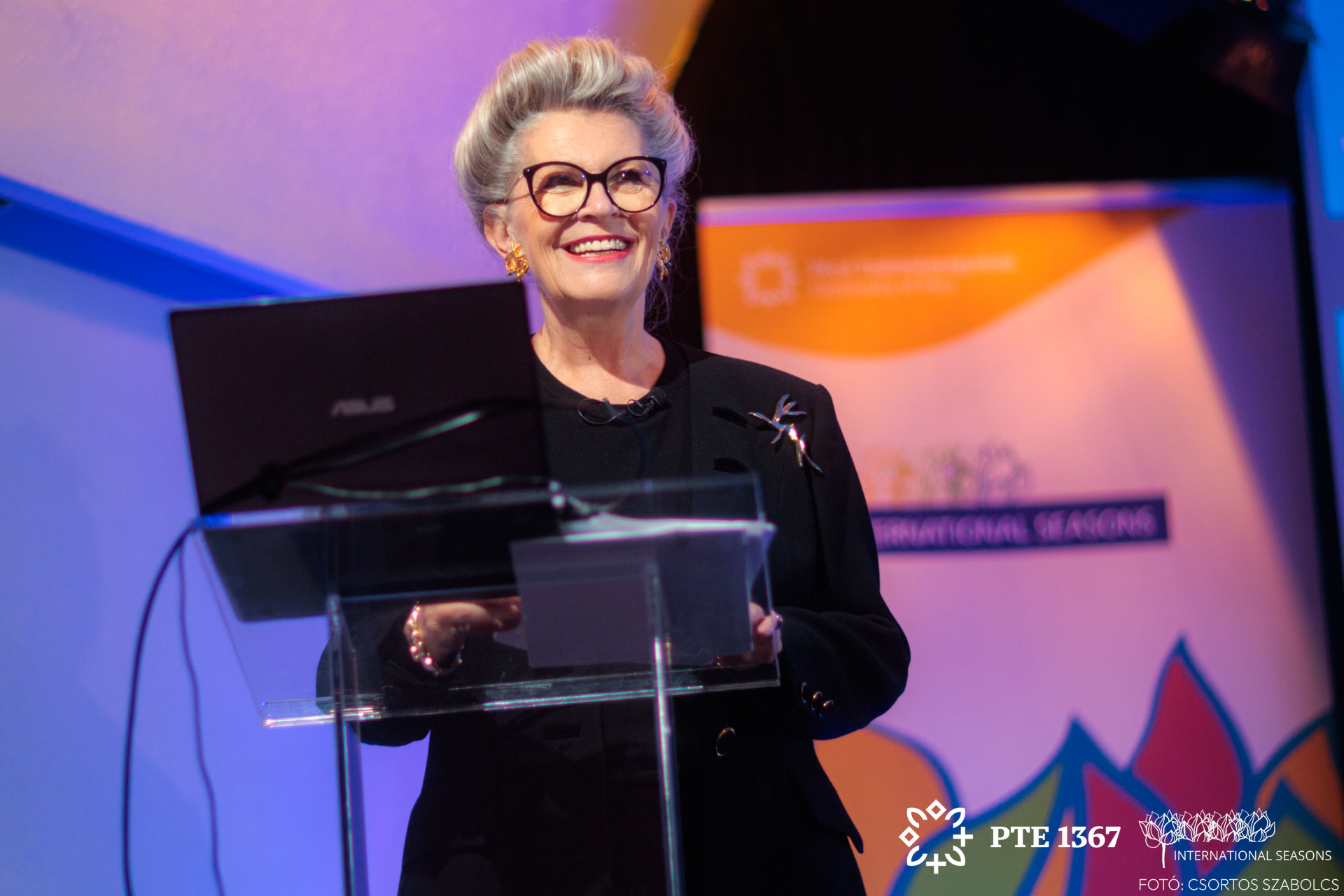
Her lecture covered a wide range of topics, skilfully combining extensive knowledge with personal experience, giving the audience a glimpse into the daily workings of the UN and the practice of international diplomacy.
“When I first spoke at the Security Council, I talked about dialogue – a form of conversation in which we remain open to one another and to each other’s ideas. Even if we are not convinced, we should still strive to understand each other,” she recalled. “As I spoke about this importance, I could feel the diplomats – who had been buried in their papers, doodling, or checking their phones – starting to pay attention.”
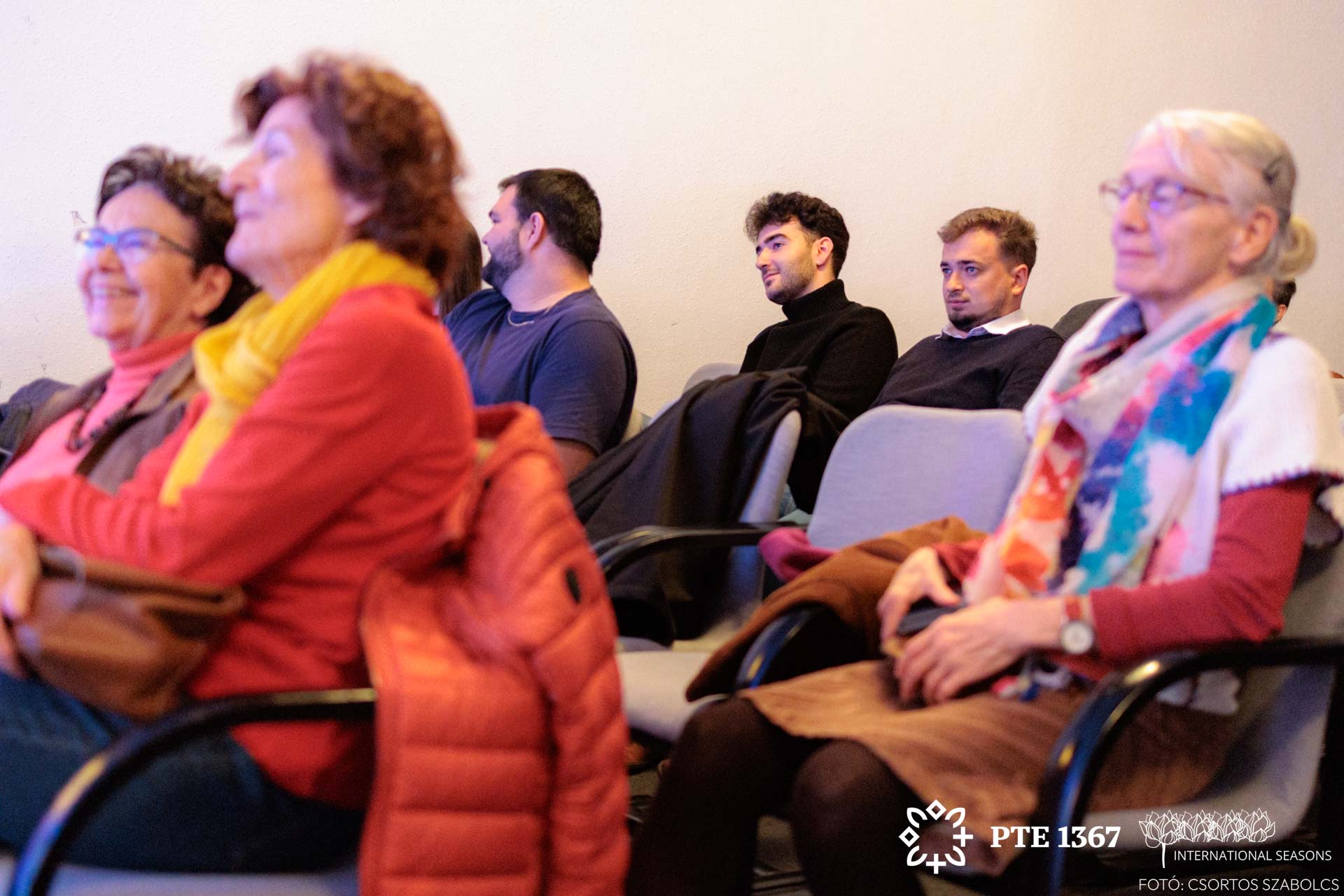
Ambassador Bogyay also spoke about the role of women in the founding of the United Nations and in the history of diplomacy, about the importance of ‘soft power’ diplomacy (cultural, educational, scientific and communication-based international relations), and about Hungary’s relationship with the UN. One particularly captivating segment was her recollection of the connection between the 1956 Hungarian Revolution and the United Nations, noting that even six decades later, many related files and dossiers remained classified. She also reflected on the role of the UNHCR – the UN Refugee Agency – which faced its first major challenge in the aftermath of 1956, when nearly 200,000 Hungarians fled abroad to escape reprisals.
She recounted the story of Danish diplomat Povl Bang-Jensen, who gave his life to protect the anonymity of Hungarians who had testified about the Revolution – safeguarding not only them but their families as well.
A recurring theme throughout the lecture was a core principle of diplomacy and a personal value that Ambassador Bogyay holds close:
“The essential thing is to be able to sit down and talk even when we do not agree.”
This, she noted, is as important in multilateral diplomacy as it is in everyday life.
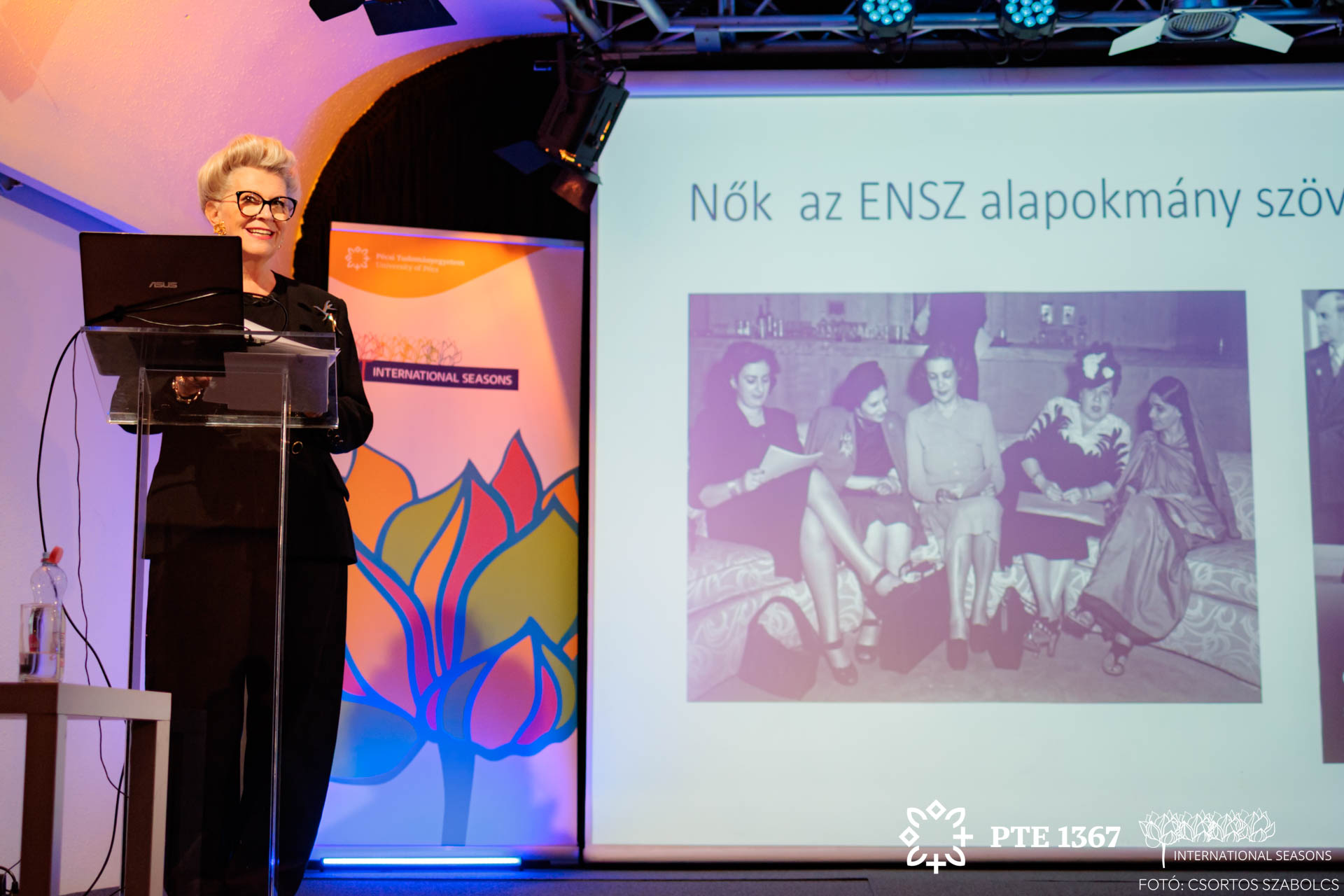
“We often hear criticism of the Security Council – and by extension, of the United Nations itself. Yet the UN’s fundamental values remain valid today. If we could live by the principles enshrined in its Charter – striving for peace, respecting one another, and upholding equality between men and women, religions and cultures – we would live not only in a more peaceful but also in a better world,” concluded Ambassador Bogyay, before opening the floor to the audience for an engaging and direct dialogue.
- Log in to post comments
University of Pécs | Chancellery | IT Directorate | Portal group - 2020.
